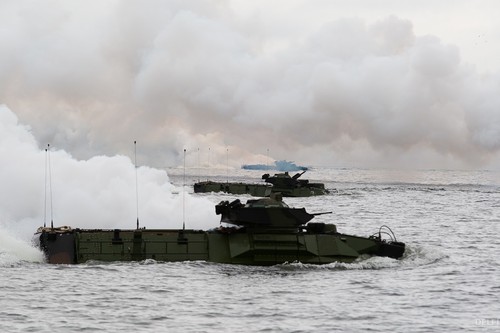
From the Economist: Listen to critics of Barack Obama’s administration and the story of American policy in eastern Europe is of a grand betrayal, featuring the binning of a promised missile-defence system, the freezing of NATO enlargement and the headlong pursuit of better ties with Russia.
The facts are rather different. The single biggest security problem in the region was left untouched by the Bush administration: the near-defencelessness of the Baltic states of Estonia, Latvia and Lithuania. Their security rested on the treaty promise of NATO’s Article 5, which provides for collective self-defence, but most practical measures, such as plans and exercises, were taboo. The Obama administration has addressed that. It pushed NATO to make contingency plans. This year the organisation has scheduled several big military exercises in the Baltic.
The Bush administration might well have seen those as too provocative: treading on Russian toes and straining ties with allies such as Germany. But the exercises are passing off almost unnoticed. One big drill, “Baltops”, which took place in June, included a full amphibious landing in Estonia and a lot of planning on how to reinforce the Baltic states in a crisis. A land exercise, “Saber Strike”, will follow, then “Jackal Stone”, a special-forces drill. Even bigger exercises are due in 2011 and 2012.
All this is a powerful response to Russia’s own military exercises last year, which practised invading, isolating and occupying the Baltic states. It is appreciated in the region. …
But private worries about the Obama administration are palpable. Its habit of referring to “partners” instead of “allies” jars. Some ill-chosen ambassadors to the region (and delays in their confirmation) rankle. One snooty envoy seems to regard meeting anyone below the prime minister as a breach of protocol. Poles mind a lot that, despite huge efforts in Iraq and Afghanistan, they still face costly and tiresome visa rules that have been lifted for others.
The big worry is that since the “reset” is a rare bit of American foreign policy showing signs of life, it creates momentum, expectations and pressure on unrelated matters. Polish officials, for example, were annoyed to be told to invite a senior Russian to a recent pro-democracy shindig in Cracow: excluding him would supposedly have caused a damaging row. (Poland said no; nobody noticed.) (photo: Andres Putting, Delfi/Office of the President of Estonia)
Image: estonia%20office%20president%208%2012%2010%20baltops.jpg
